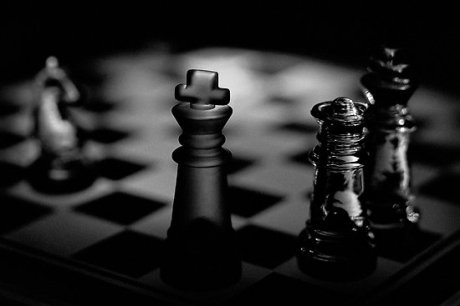In The Sociopath Next Door, Martha Stout raises the following excellent question: “If sociopaths are so focused on their goals and so driven to win, then why do they not win all the time?” She goes on to explain that, basically, sociopaths are losers: “For they do not [win or succeed in life]. Instead, most of them are obscure people, and limited to dominating their young children, or a depressed spouse, or perhaps a few employees or coworkers… Having never made much of a mark on the world, the majority are on a downward life course, and by late middle age will be burned out completely. They can rob and torment us temporarily, yes, but they are, in effect, failed lives.” (The Sociopath Next Door, 188)
I think that Martha Stout, Robert Hare, Steve Becker and many other experts on sociopathy are right to say that sociopaths play games in life and aim to win. They’re also right to observe that sociopaths generally don’t win because they tend to sabotage every relationship and endeavor by cheating, lying and engaging in other destructive behavior. But all this assumes that psychopaths have the same conception of “winning” that normal people have. It’s true that psychopaths lose in life by normal standards. But, as we well know, psychopaths lack normal standards and perspectives in pretty much all areas of life. They don’t view “winning” in the positive sense of achieving success–be it successful long-term relationships or professional endeavors–but rather as causing others to lose.
To offer one noteworthy example, from a normal perspective, Hitler and Stalin are the Big Losers of history. They’re evil dictators who trampled over countless human lives in their march to absolute power. But keep in mind that their goal was not governing strong nations in general, as was arguably Napoleon’s goal. These two totalitarian rulers wanted to achieve total control over several nations: and the entire world, if possible. Total control can’t be achieved without the subjugation, and even the annihilation, of any dissenting voice; without the inculcation of fear; without violence.
Sociopaths would rather win by becoming notorious for their crimes rather than famous for their achievements. How else can one describe the motivations of serial killers like Ted Bundy and so many others, who take pride in violent crimes and the ability to get away with them (at least for awhile)? Fortunately for the rest of humanity, most sociopaths aren’t world dictators or serial killers. However, looking at these prominent examples helps us understand better the distorted logic of sociopathy. It’s an “I win if you lose” mentality. In their own warped perspectives, sociopaths win by destroying other human beings and their social institutions, regardless if that enables them to achieve anything in life or lands them straight in prison.
Perhaps a sociopath’s only fear is being unmasked as evil, because that exposes the nature of his game. As Harrison Koehli eloquently puts it, “[Psychopaths] hang on to their masks with such conviction because they are predators, and without them, they cannot survive… To let down that facade would reveal that they are little more than unfeeling intraspecies predators that feed off the pain and suffering of others and thus destroy their chances of feeding. Even a psychopath is aware of the consequences of such a revelation. His ‘dreams’ of a boot forever stomping on the face of humanity are crushed.” Unfortunately, for as long as there will be people protecting, colluding with, and covering for sociopaths, these parasites will continue to feed on us, even if it means the destruction of both predator and prey. Sociopaths play a very dangerous game, whereby they win by losing.
Claudia Moscovici, psychopathyawareness
Dangerous Liaisons: How to Identify and Escape from Psychopathic Seduction


